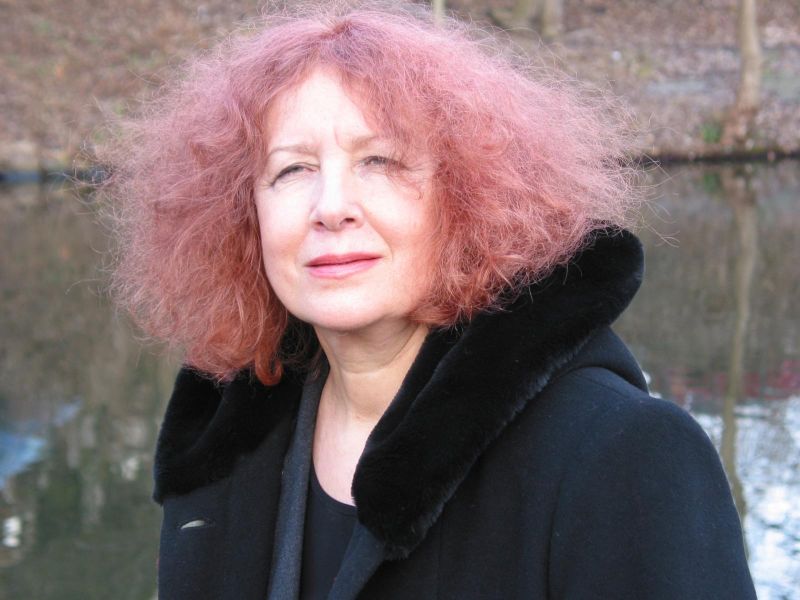Janina Szarek and the Teatr Studio am Salzufer – Tadeusz Różewicz Bühne Berlin
Mediathek Sorted
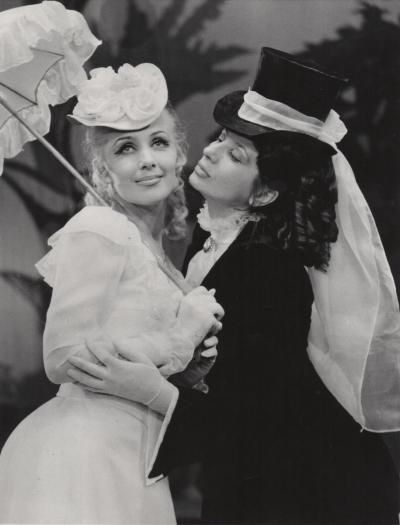
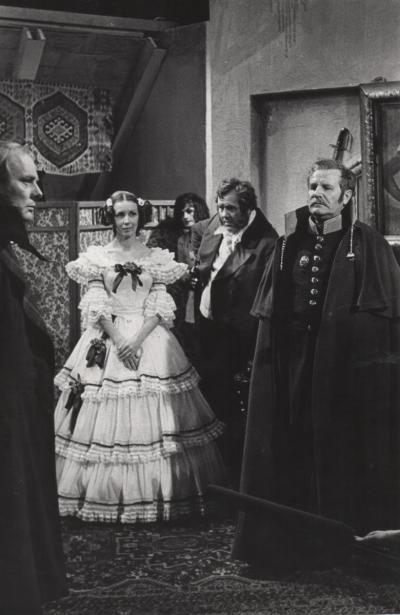
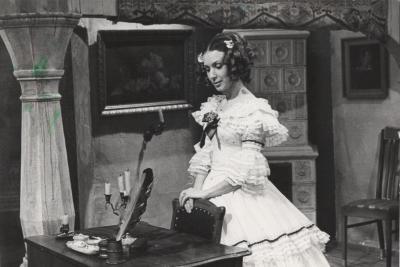
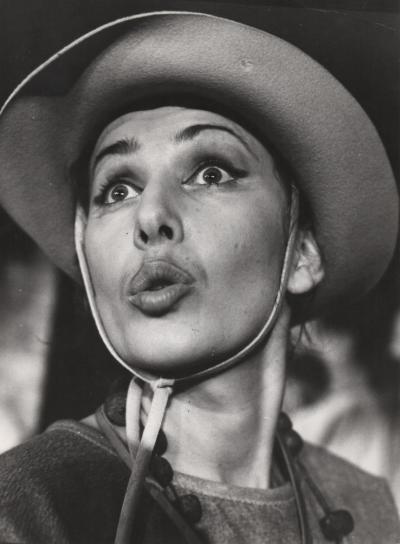
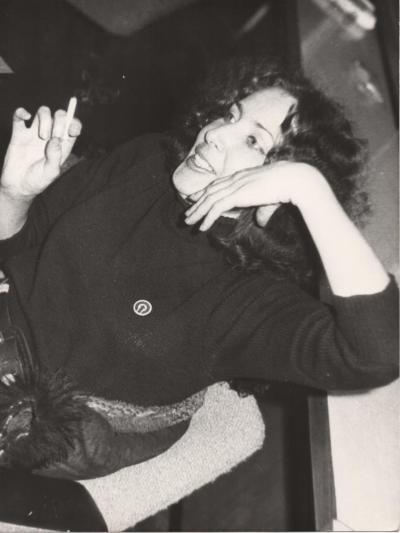
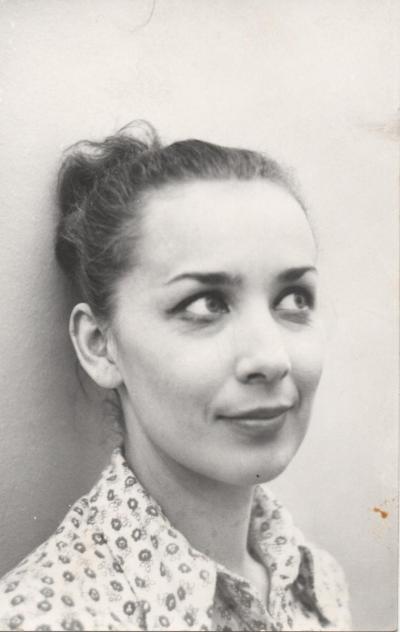
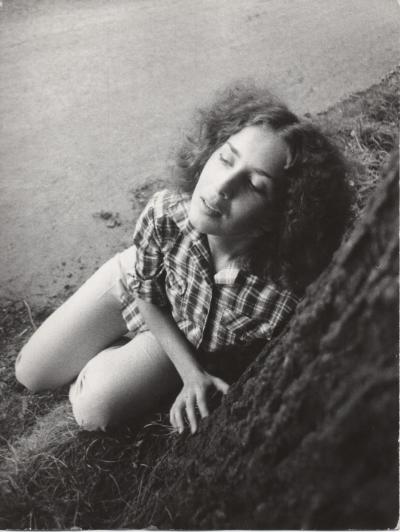
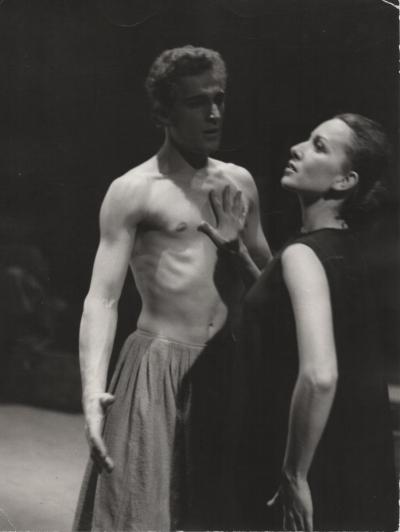
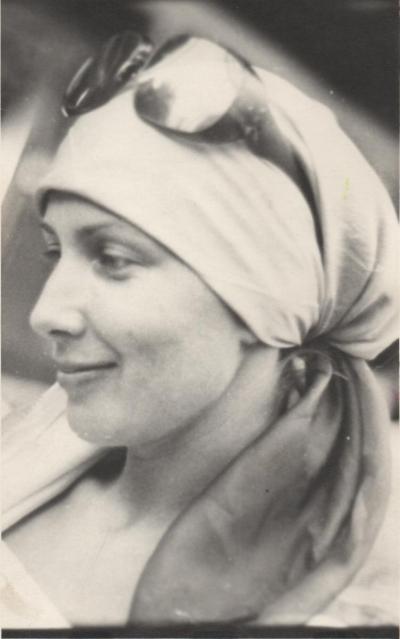
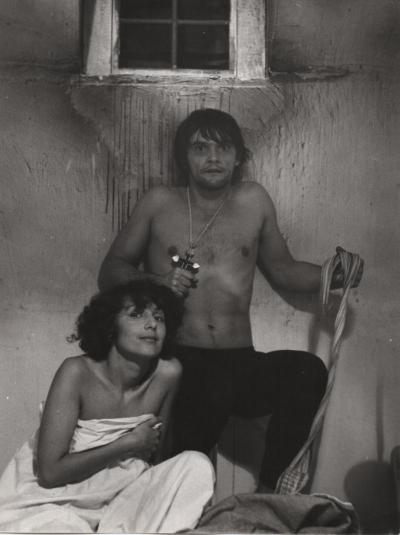
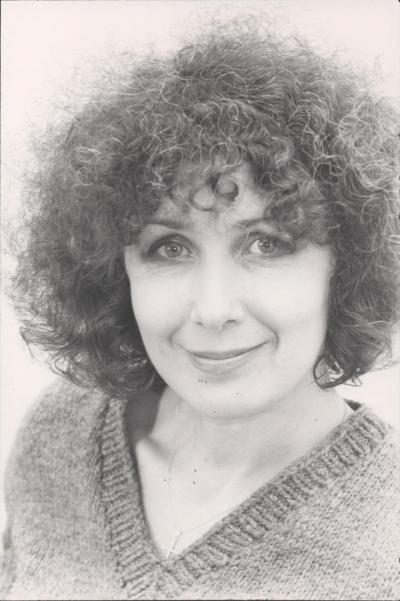
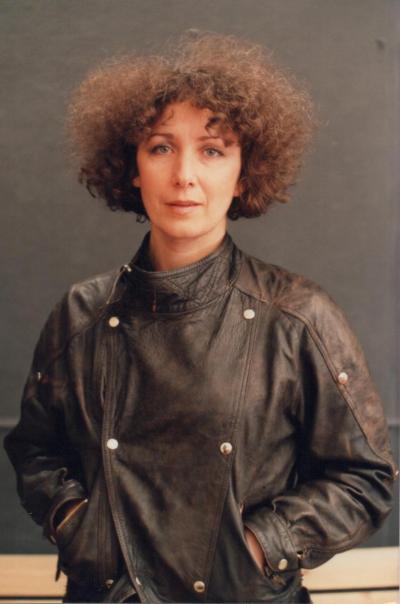
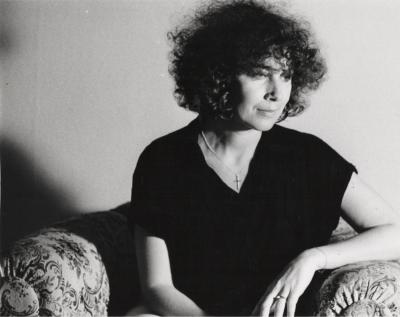
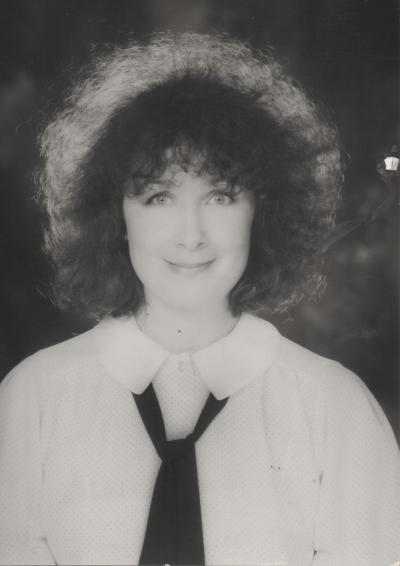
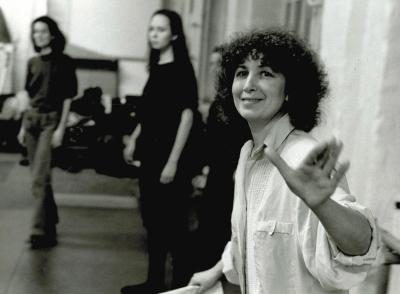
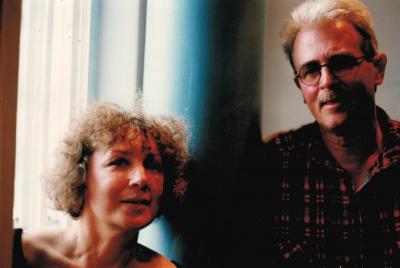
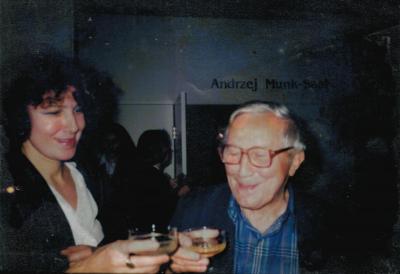
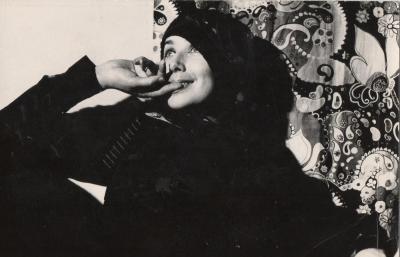
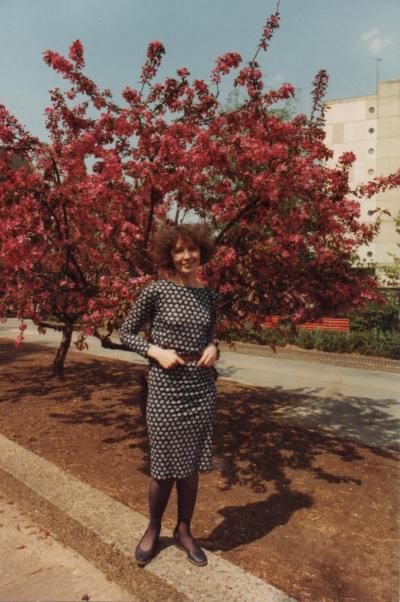
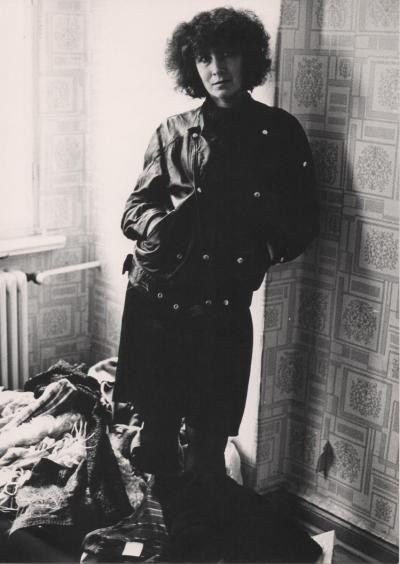
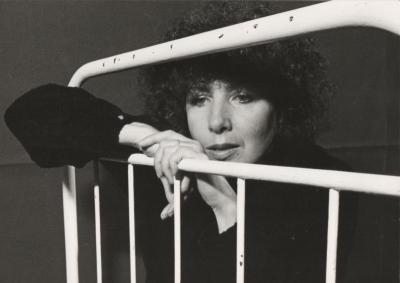
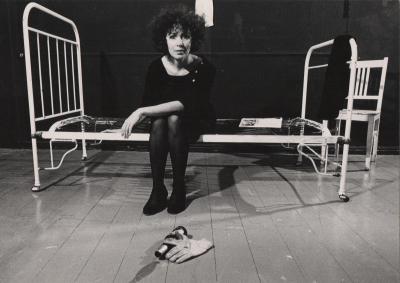
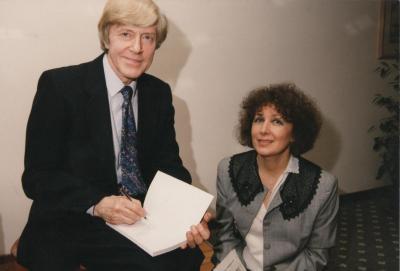
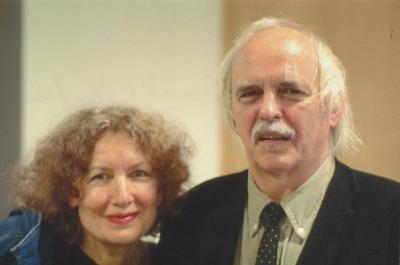
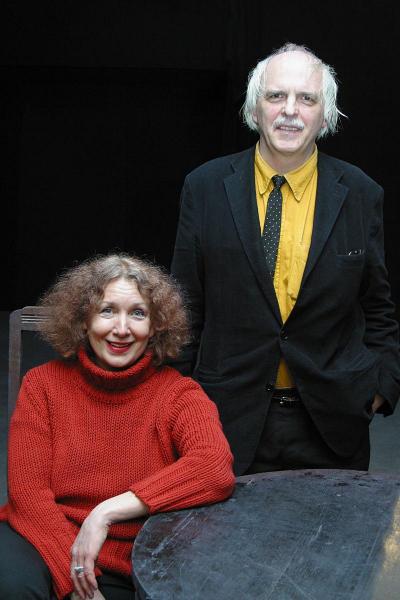
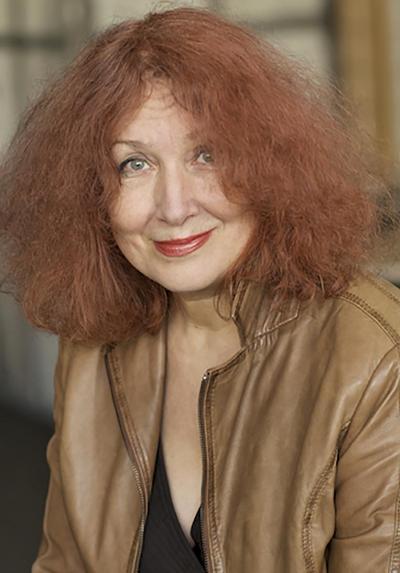
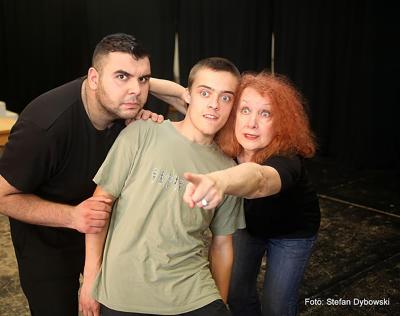
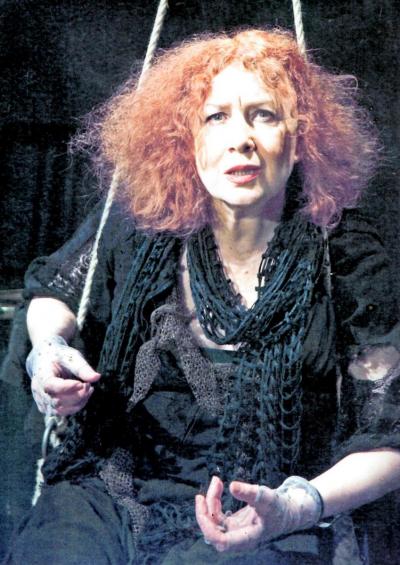
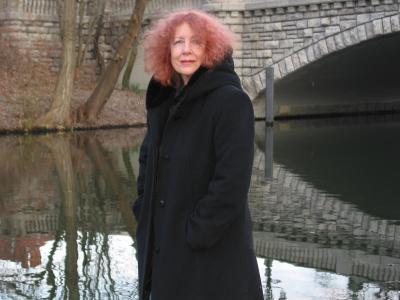

Film "The Madman and the Nun" - St. Ignacy Witkiewicz, Filmstudio Transform, Director: Janina Szarek

Jubileusz 16-lecia Szkoły Aktorskiej TRANSform oraz 14-lecia Teatru Studio
































Janina Szarek was born on 24 June 1946 in Ruda Różaniecka, in the former Lwów Voivodeship. Her parents were in the Polish Home Army (Armia Krajowa); at the time, the Solska Forest (Puszcza Solska), in which her home town was located, was also a getaway for the soldiers from the Home Army who were being persecuted by the Communists. Before the Second World War, the region was a melting pot of culture in which Poles, Ukrainians and Jews had lived for centuries, alongside Austrians and Russians.
Janina Szarek spent her early childhood years in the village of Basznia Dolna. In September 1949, the family moved to Bełżec, ironically to a place where there had been a National Socialist extermination camp during the war in which, according to various estimates, almost half a million people, mostly Polish Jews, had been killed.
In Janina Szarek’s recollections, her home truly seemed a place of refuge: “Our apartment in Bełżec was on the enormous site of a distillery and was next to, or more accurately, connected to the distillery which dated back to Austrian times. The building had a number of secret nooks; it was old and had an eerie, surreal feel to it. As well as our apartment, there was another half-destroyed, abandoned apartment and a quite wonderful attic. The bizarre, empty apartment and the attic, which were both full of old furniture, objects and toys from the pre-war period, things which simply did not exist in the era of the People’s Republic of Poland, inspired childhood fantasy, gave it wings, and provided space for never-ending games, dreams and bright ideas. It was an unusual place in which, even at the age of four or five, magic and metaphysics were there to be discovered. The sensuality of the lush, half overgrown nature that surrounded us contributed the rest.”[1]
Little Janina’s childhood home, and her grandfather’s house even more so, were also places in which music was played and where there was access to literature. The evenings were spent reading out novels by Sienkiewicz, Żeromski and Kraszewski. From an early age, the young girl made her first attempts to show her family her acting talent, and the world of the theatre would accompany her throughout her childhood and youth. The choir solos, the writing of poems, the taking part in recitation competitions and her involvement in the school theatre were important experiences for her and reinforced her belief in a possible stage career. So gradually, the idea of going on to do theatre studies began to take root.
Professional career in Poland
In 1964, Janina Szarek did her A-levels at the Bartosz Głowacki Grammar School in Tomaszów Lubelski and sat the entrance exam to take Polish studies in the philological faculty at the Jagiellonian University. In Kraków, being a child from the provinces gave her a complex and she had to battle severe shyness.[2]. Her thoughts, however, continued to focus on the theatre. Eventually, she immersed herself in the Bohemian world favoured by some students. Among others, she appeared in the Styx group in Kafka’s “The Trial” and performed in “The Madman and the Nun” (Wariat i zakonnica) by Stanisław Ignacy Witkiewicz (alias Witkacy). Whilst at university, she made contact with the Teatr STU in Kraków, the theatre of the State Theatre School (Państwowa Wyższa Szkoła Teatralna), which was set up in 1966. The theatre was looking for new actors. Janina Szarek passed the admission exam and became part of an ensemble in which she met Olgierd Łukaszewicz, Jerzy Trela, Wojciech Pszoniak, Jan Łukowski, Jerzy Szejbal, Jerzy Stuhr, and Krzysztof Jasiński, to name but a few. A short time later, she was given a role in Bolesław Leśmian’s “Kabała” (The Kabala). After this, she could be seen in “Oratorium rewolucyjne” (The Revolutionary Oratorium), a stage play that was also based on texts by Krzysztof Kamil Baczyński. As an actress in the Teatr STU, she took part in many theatre festivals. A short time later, Krzysztof Jasiński established a kind of theatre school in Kraków, which he called Studio Aktorskie Teatru STU. Janina Szarek was admitted to the school and continued to develop her acting talent.
The civil unrest in March 1968 was a watershed moment. At the time, the actress was in her fourth year at university and was supposed to travel to a festival in France with the Teatr STU but, for political reasons, the trip could not go ahead. Janina Szarek then realised, somewhat bitterly, that her fellow students at the Kraków State Theatre School had hardly shown any interest in the situation in the country or in the protests in which students throughout Poland were taking part. The conflict created by her attitude led to the actress being removed from the theatre and from the studio without further explanation.
A few months later, Szarek sat her entrance exam for the State Theatre School in Kraków, where she studied alongside Anna Dymna, Krystyna Tkacz, Marzena Trybała, Andrzej Malec and Ewa Dałkowska. She was now actively living the life of an artist, including as a co-founder and co-creator of the student theatre. She sang in the Kraków Klub pod Jaszczurami and performed in Janusz Rewiński’s political cabaret. She gained her degree at the Kraków Theatre School thanks to her involvement in three performances: Bronisław Dąbrowski’s production of “The Cherry Orchard” by Anton Chekhov, the comedy “Fantazy” written by Juliusz Słowacki and directed by Jerzy Merunowicz, and “Gyubal Wahazar” written by Stanisław Ignacy Witkiewicz and directed by Bogdan Hussakowski.
In 1972, immediately after finishing her degree, Janina Szarek received an offer from the Teatr Współczesny in Wrocław, one of the most interesting theatres in Poland whose work was often experimental. The young graduate of the Theatre School was immediately cast in “Ladies and Hussars” (Damy i huzary) by Aleksander Fredro. She also played the Communist Tamara in “The Young Guard” [based on the novel of the same name] by Alexander Fadejew, a young woman in “Lysistrata” by Aristophanes, Izabela Łęcka in “Mr Wokulski” (Pan Wokulski) based on the novel “The Doll” (Lalka) by Bolesław Prus, the Pallas Athena in “The Oresteia” by Aeschylus and Tatjana in Maxim Gorky’s “The Philistines”. Increasingly, she was also finding work with the Polish television theatre (Teatr Telewizji), where amongst the many roles she played was the role of the white girl in “Medea” by Euripides [adapted by] Dygat. In Kazimierz Braun’s production of “The Old Woman Broods” by Tadeusz Różewicz, she was given the role of the pretty girl. This stage play, which in its multiplicity surpasses all other works by Różewicz and is usually understood to be the author settling scores with modern civilisation, would later be enormously important for the actress, as, incidentally, would Różewicz himself.[3]
The same goes for Krystian Lupa, whom she met in July 1973 on the train to Giżycko on the way to a summer camp for young artists. This meeting resulted in a longstanding friendship which also bore fruit professionally. In 1977, just one year after the actress left the Teatr Współczesny in Wrocław and a short time after her stint at the Bałtycki Teatr Dramatyczny in Koszalin, Krystian Lupa staged a production of the stage play “The Madman and the Nun” by Stanisław Ignacy Witkiewicz at the Wrocławski Teatr Telewizji (Wrocław Television Theatre). This commission marked the television début of the highly talented director. Janina Szarek was given the female role of Sister Anna. Artistically, the production was a sensation, achieved cult status and was acclaimed by critics. This was to be Janina Szarek’s breakthrough role in her acting career. As she recalled, “The work with Krystian Lupa was so fascinating and so different to anything else that had otherwise happened in my career that, from September 1977, I decided to commit to the Teatr Cypriana Kamila Norwida in Jelenia Góra so that I could continue to work with him and develop myself artistically.”
In Jelenia Góra, Janina Szarek embodied the title role in Goethe’s “Iphigenia in Tauris” in the production by Alina Obidniak. There, she also played the female role of Lavinia in “Androcles and the Lion” by George Bernard Shaw in a production by another prominent director. He was Henryk Tomaszewski, the founder of the Wrocław Pantomime Theatre (Wrocławski Teatr Pantomimy), who was considered one of the most prominent figures in Polish theatre in the 20th century. After a few years, Janina Szarek realised, “In the beginning, I had only recognised the greatness of Polish tradition and the significance of the creative methods from a distance. My work with Krystian Lupa and Henryk Tomaszewski were to create yet more key events in my artistic life. This was the most important theatre school for me and it equipped me with the technical tools. It awakened in me my artistic imagination, taught me to think about acting and theatre, also taught me the characteristic that is so vital in the arts – to have the courage to be different, that is, the courage for differentness.” [4]
In 1978, Janina Szarek returned to Wrocław where she was employed by Jerzy Grzegorzewski at the Teatr Polski. In the years that followed, she acted in a number of plays, including Witold Gombrowicz’s “Possessed” (Opętani), “Pastorałka” (Pastorale) and in “Kram z piosenkami” (A Stall with Songs) by Leon Schiller and “Baba-Dziwo” (Wonderful Woman) by Maria Pawlikowska-Jasnorzewska. She also brought songs by Brecht to the stage with the jazz ensemble Crash. Alongside all this, she was involved in cabaret and poetry programmes for the local television broadcaster in Wrocław (Telewizja Wrocław) as well. She also gave guest performances throughout Poland in the poetic monodrama “Czerwcami gorące” (June Heat), which was based on the erotic poems of Bolesław Leśmian and recognised at the solo festival (Festiwal Jednego Aktora). She worked with Krystian Lupa on the production of the play.
Leaving for Berlin
In June 1981, Janina Szarek travelled to West Berlin without actually wanting to stay there forever. But the city enticed her with its openness and modernity. The cultural life was so completely different to that in Communist Poland. Barely a month after her arrival, Szarek was given an official permit to stay for two years. She started to look for work in the theatre although her German was still not really good enough. In September 1981, she began working as a drama teacher with the Transformtheater that had only just been established by the director Henryk Baranowski. On 13 December 1981, a state of war was declared in Poland. Janina Szarek, for whom Berlin was only supposed to be a stopover, decided to stay in the city and involuntarily became an emigrant.
In the two years that followed, Janina Szarek devoted herself to her teaching role and she learnt German. She realised that in Berlin, in contrast to Poland, it is possible for a drama student to prepare for professional exams by taking private teaching units and courses. This realisation caused her to leave the Transformtheater in the winter of 1983 and, together with some students, create an association and a theatre ensemble called Studio – Gruppe 44. In this new framework, she shared her knowledge and her experience with young people who dreamt of being on the stage. Her students (the studio existed until 1992) sat admission exams before a state board to become actors or directors. Many of them have since had successful careers in the theatre.
However, despite her acknowledged abilities as an artist and as a teacher, the actress did not have the same rights in Berlin as her German colleagues from the profession. Each new commitment required various formalities for her to obtain a work permit. This situation only changed when, with the help of the Berlin Senate, her residence permit was extended by a clause which allowed her to work as an independent actress, director, teacher and theatre director. Moreover, the passage in the document which prevented foreigners from settling in the Kreuzberg artist quarter was deleted from her passport. Janina Szarek made use of this privilege straight away and moved to where the heart of the Berlin Avant-garde was beating.
In 1983, Janina Szarek took over the management of the drama department at DIE ETAGE, the School for the Performing Arts and Visual Arts in Berlin. The next year she was again given a television role in the ZDF film “Er fällt in voller Montur”, in which Szarek played the lead role of the Pole Vera Gorbacz. Gradually, despite her Polish accent which was still discernible, she also managed to overcome her fear and her own internal obstacles that prevented her from performing in German.
In 1990, Szarek was given the role of the Pole Wanda Winnicka in “Lindenstraße”, the popular series from Westdeutsche Rundfunk. In the same year, she went to London to work as a teacher at the Science School of Acting, a private drama school. She was also performing and she directed plays in the Polish Social and Cultural Centre (Polski Ośrodek Społeczno-Kulturalny). She always kept up her professional contacts in Berlin and returned to the city for good in 1994. Things were better for her here than in the English metropolis. She organised a German-Polish theatre festival for the State Uckermark Theatre in Schwedt an der Oder, acted in a production by Kain Karawahn at the renowned “People’s Theatre” in Rosa-Luxemburg-Platz and was once again a guest lecturer on the drama course at the Konrad Wolf Film University in Babelsberg and at the Ernst Busch School of Dramatic Arts in Berlin. As well as working in the theatre, she also worked as a teacher and director at the Musical – Neukölln state school. From 1995 to 2002, Szarek directed five musicals, which were performed at the Ballhaus Neukölln.
In 1999, Janina Szarek and the essayist, art critic and poet Prof. Olav Münzberg, who would also become her new life partner, founded the Internationale Theater Werkstatt e.V. (ITW) together. At the time, Münzberg was a very well known figure in the cultural world of Berlin as Chair of the Association of German Writers in Berlin and the New Society for Literature. International artists, writers and intellectuals were all involved with the ITW. The main role of the association was to create the conditions for a German-Polish theatre in Berlin. But, at the same time, its role was also to create a place for dialogue, for thought exchange and for cultural mediation from a human perspective and from an artistic perspective. At the end of 1999, the Internationale Theater Werkstatt staged its first premiere in the Polish Cultural Institute in Berlin with the play “Country House” (W małym dworku) by Stanisław Ignacy Witkiewicz and directed by Janina Szarek. The performance was greeted with enthusiastic acclaim by the audience and the media published very positive reviews. Nevertheless, despite their best efforts, they were unable to find sponsors for the German-Polish theatre.
TRANSform Drama School
Founding the TRANSform Drama School proved to be a way out of the situation because it opened up the possibility of setting up their own theatre in the not too distant future. Lessons started on 15 January 2002. The course was to take seven semesters. The teaching staff was made up of people from many nations, including experts in the art of words and movement, singing and acting. The school prepared the students for a professional life in the theatre, but also in the film and television industries. And although it was a private institution, the degree certificates were recognised by public authorities which meant that the students could apply for a grant under the Federal Training Assistance Act ( BAföG for short). In the year the school was established, the students took part in “Eurodrama 2002”, the Wrocław forum for contemporary dramatic composition, which was organised by the Teatr Polski in Wrocław. They also took part in workshops put on by Krystian Lupa and Dea Loher, one of the most important contemporary authors and playwrights in Europe.
The students at the school represented the multicultural flair of Berlin, even though many young people were of Polish descent. The school has repeatedly produced excellent graduates, with Karolina Lodyga (graduation year 2007) being the most famous. The television and theatre actress became known for roles, including Katharina in Dominik Graf’s crime series “In The Face of Crime”, which was awarded the German Film Prize in 2010 for the best series. A similar successful role, which ensured her place in the affection of the public, was that of Katja Polauke in the television series “Anna und die Liebe” shown on Sat.1. The actress also appeared in an episode of the much-loved crime series “Tatort” (2013). She was also very much at home in German theatres, including the Comödie Dresden (“Nackter Wahnsinn”) and the Schlosstheater Celle in the lead role of “Alice in Wonderland”. She also gained further recognition when the popular television series “4Blocks”, in which she was also involved, received a Golden Camera. Karolina Lodyga remembers her drama school: “The TRANSform Drama School is unique. After two years at a different school, I switched to TRANSform and started my training from the beginning. The two schools were very different, which was immediately noticeable. At TRANSform, I immediately threw myself into the work which was intensive and hard like nowhere else. Today, I think that there is no other drama school like it in Germany.”[5]
Theatre as a Protest
On 28 February 2004, it happened. The long-held dream of having her own theatre came true when the Teatr Studio am Salzufer opened in the former textile factory at Salzufer 13/14 in Berlin-Charlottenburg. Klaus Wowereit, the mayor of Berlin at the time, took over the patronage. The theatre was to be a German-Polish theatre which, if not exclusively, would predominantly put on plays by Polish authors in German.
The theatre ensemble was made up of students from the TRANSform Drama School which was housed in the same building. In the foreword to her book “Teatr Studio am Salzufer – Tadeusz Różewicz Bühne”, which was published in 2015 to mark the 10-year anniversary of the theatre, Janina Szarek marked the work of the theatre as follows: “Thanks to our openness and growing differentness, young people are fascinated by the German-Polish studio theatre. We are a professional theatre but, in terms of sensitivity and spontaneity, we are a random one. When it comes to making artistic decisions, we are a youth theatre that is far removed from professional routines. (...) The German-Polish theatre holds onto German and Polish set designers, musicians, authors, and gives them the opportunity to make artistic statements. In this obsessive experimental adventure, we can go all out with the young people in the theatre. This allows us to go far beyond conventional boundaries, something that would not be possible with the so-called ‘normal’ acting ensemble.”[6] – tak działalność teatru charakteryzuje Janina Szarek we wstępie do książki „Teatr Studio am Salzufer – Tadeusz Różewicz Bühne“ wydanej w 2015 roku na 10-lecie sceny.
The theatre producer admits that the idea of setting up the theatre came about as a protest against the stereotypical perception of Poles by the Germans who know so little about their neighbours in the East. Before Poland entered the European Union, the artists and intellectuals living as emigrants fostered a special atmosphere of therapeutic confrontation with reality. “We protested against discrimination and cultural marginalisation, against mutual prejudices and mental barriers, against national and cultural German-Polish stereotypes. (…) Our theatre has created a kind of therapeutic role for itself, a particular type of ‘catharsis‘ concerning German-Polish relations. We are not just a place where theatre is made and taught, we are – and this is the most important thing – a place where both cultures meet and move closer together, even if it is not always pleasant to be handed a skewed mirror.”[7]
In conversation with a journalist from the national Polish daily newspaper “Gazeta Wyborcza”, Janina Szarek was even more emphatic about the idea behind the creation of the theatre when she said, “When the Wall fell, the relationship [of the Germans] to Poles was reversed. Suddenly, we stood before them as the country of car thieves and farmers. The average German does not know anything about Polish history, culture, literature. (…) The Germans are difficult partners for us. But it doesn’t make any sense to knock down bridges behind you. We have to talk to one another. Our studio theatre is not just intended to be a meeting point for German and Polish theatre professionals who work together on a production; it should also be a place for personal, artistic, social and cultural-political dialogue in the Berlin of today.”[8]
For the opening premiere, the theatre’s founders chose the stage play “White Marriage” (Białe małżeństwo) by Tadeusz Różewicz. In a symbolic gesture, the author, himself a great proponent of the theatre’s founding, and Henryk Bereska, who translated the play into German, declined their fee in order to express their support for the initiative. Różewicz became the spiritual patron of the theatre which he called a “theatre of biological and artistic renewal”. Janina Szarek wrote about his role in the creation of the theatre: “Irrespective of this author’s works being produced in our theatre, Tadeusz Różewicz has a special place in our theatre, particularly in the process of developing the German-Polish theatre in Berlin and in the history of our theatre. In some respects, he has become the driving force of the idea, its patron and its inspirer. From the very beginning, he believed in the special purpose of this undertaking and the interest and good will he showed gave us courage and strength... (…) The selection of his play for the act of opening the theatre was intuitive and automatic although we already knew each other and stayed in touch. Today, I am of the opinion that no other author would have been better for it...”autor nie nadawałby się do tego lepiej.“[9]
Both the production and the creation of the German-Polish theatre were received to enthusiastic acclaim by the audience and by the media. Only two months later, in 2004, the theatre was given a grant by representatives of the Federal Government for Culture and Media to buy technical equipment. In June 2004, the next premiere was held – a production of the stage play “Transatlantik” by Witold Gombrowicz. In the years that followed, the theatre put on further productions, invited guest ensembles to perform and toured Poland and Germany with its own repertory company.
The style of Janina Szarek’s productions is very individual to her. Her theatre is shaped by the unusual emotionality of the productions. These productions are perhaps a response to German theatre, which seemed to her to be too intellectual and is due to the fact that the German perception of the world differs from the Polish perception. “The differences between the German and the Polish mentalities can generally and roughly be defined as a conflict between intellect and emotion. This is a typical conflict between Eastern European and Western European mentalities.”[10] At the same time, the perception of the world through the prism of emotions for art is something which has proven itself well. “The Poles”, says Janina Szarek, “are like little children, they are more emotional. The Germans are much more mature. Poles are not very good at politics. But one has this madness in art.”[11]
The Teatr Studio has worked with the Warsaw Akademia Teatralna (Theatre Academy) more or less from the start. In 2006, the Berlin theatre started a regular collaboration with the Teatr Współczesny in Szczecin. In January 2007, the premiere of the stage play “The Old Woman Broods” (Stara kobieta wysiaduje) by Tadeusz Różewicz was held in Berlin; the play was created in tandem with the theatre in Szczecin. Janina Szarek played the lead role and directed the play. It was Różewicz himself who gave the impetus for this, saying that the actress “...is at a good age, physically and mentally, to play the lead role.”[12] The performance was very well received by the audience and was soon taken on tour throughout Poland and Germany. In total, the stage play was performed 70 times. The production of “Ubu Roi”, which was also developed with the Teatr Współczesny in Szczecin, was a success.
A close relationship and friendship developed between Janina Szarek and Tadeusz Różewicz. They wrote to each other regularly for many years. When the poet died in 2014, the name of the theatre was changed. Since then, it has been called Teatr Studio am Salzufer – Tadeusz Różewicz Bühne Berlin.
In 2014, the Teatr Studio celebrated its 10-year anniversary once again with a successful première. This time it was “Pfannkuchen, Schweine, Heilgenscheine” (Pancakes, Swine, Halos), a play based on prose texts and poems, also based on the novel “Angels and Pigs in Berlin” by Brygida Helbig-Mischewski, an author who lives in Berlin and was nominated for the NIKE prize, the most important literary award in Poland. The theatre portal www.teatrdlawas.pl called the production one of the most important Polish theatre productions worldwide in the 2014/2015 season.
Janina Szarek’s artistic work regularly earns her acclaim and awards. In 2014, the actress was awarded the Gloria Artis Medal, the highest award bestowed by the Polish Minister for Culture and National Heritage for artistic creations and cultural achievements. One year later, Janina Szarek was awarded the Stanisław Ignacy Witkiewicz Prize, which the theatre critics at the Polish Centre of the International Theatre Institute award for services to raising awareness of Polish theatre culture abroad. In 2017, the actress was awarded the Golden Owl in the Theatre category, an award given by the Vienna monthly magazine “Jupiter”, which is conferred on deserving Polish cultural and artistic creatives who live abroad. In the same year, Janina Szarek was also nominated for the Blauer Bär [Blue Bear] European Award, with which the Land of Berlin and the representative body of the European Commission in Germany honour people who have been active in disseminating and strengthening European values.
For Janina Szarek, the founding and upkeep of the German-Polish theatre was at the heart of her artistic activities in Berlin. Looking back, the actress, in summing up her successes, feels that the path towards realising this idea, even if it was a long and uncertain one, turned out to be a fulfilment of her true calling: “...I had to emigrate from Poland to build this theatre in the Berlin of today.”[13]
Monika Stefanek, August 2018
Address: TRANSform Schauspielschule und Teatr Studio, Salzufer 13-14, 10587 Berlin
Website: www.transform-schauspielschule.de
List of Janina Szarek’s theatre roles:
Fräulein Bürstner in “The Trial” by Franz Kafka, Director: Józef Jasielski, Teatr Styx, Kraków.
Buhlerin in “Kabała “ (The Kabbala), poetic drama based on the poems of Bolesław Leśmian, Scriptwriter and Director: Krzysztof Jasiński, Teatr STU, Kraków.
Revolutionary in “Oratorium rewolucyjne” (The Revolutionary Oratorium), poetic drama based on the poems of Bruno Jasieński and Krzysztof K. Baczyński, Director: Krzysztof Jasiński, Teatr STU, Kraków.
Charlotta in “The Cherry Orchard” by Anton Chekhov, Director: Bronisław Dąbrowski, Final Performance, State Theatre School (PWST), Kraków.
Respektowa in “Fantazy” by Juliusz Słowacki, Director: Jerzy Merunowicz, Final Performance, State Theatre School (PWST), Kraków, 1971.
Woman in red in “Gyubal Wahazar” by Stanisław Ignacy Witkiewicz, Director: Bogdan Hussakowski, Final Performance, State Theatre School (PWST), Kraków, 1971.
Woman in “Eh Joe” by Samuel Beckett, Director: Tadeusz Kijański, Student Theatre at the State Theatre School (PWST), Kraków.
Ghost in Janusz Rewiński-Kabarett, Scriptwriter and Director: Janusz Rewiński, Klub “Pod Jaszczurami”, Kraków.
Zosia in “Ladies and Hussars” (Damy i huzary) by Aleksander Fredro, Director: Andrzej Witkowski, Teatr Współczesny, Wrocław, 1971.
Tamara in “The Young Guard” by Alexander Fadejew, Director: Andrzej Witkowski, Teatr Współczesny, Wrocław, 1972.
Young Woman in “Lysistrata” by Aristophanes, Director: Raul Zermeno, Teatr Współczesny, Wrocław, 1973.
Girl in “Czerwcami gorące” (June Heat), a poetic monodrama based on the poems of Bolesław Leśmian, Scriptwriter and Director: Janina Szarek (Director in conjunction with Krystian Lupa), Piwnica Świdnicka, Wrocław, 1973.
Pallas Athene in “The Oresteia” by Aeschylus and Kassandra, understudied but not performed, Director: Józef Para, Teatr Współczesny, Wrocław, 1973.
Izabella Łęcka in “Pan Wokulski” (Mr Wokulski) based on Bolesław Prus, Director: Józef Para, Teatr Współczesny, Wrocław, 1973.
White Girl in “Medea” by Euripides / [adapted by] Stanisław Dygat, Director: Stanisław Brejdygant, Wrocławski Teatr Telewizji, Wrocław, 1974.
Tatjana in “The Philistines” by Maxim Gorki, Director: Józef Para, Teatr Współczesny, Wrocław, 1974.
Janina in “Grzech” (The Wages of Sin) by Stefan Żeromski, Director: Jacek Szczęk, Teatr Współczesny, Wrocław, 1974.
Ewa in “Komedia rodzinna” (Family Comedy) by Ireneusz Kocyłak, Director: Andrzej Maria Marczewski, Teatr Współczesny, Wrocław, 1975.
Pretty Girl in “The Old Woman Broods” (Stara kobieta wysiaduje) by Tadeusz Różewicz, Director: K. Braun, Wrocławski Teatr Telewizji, 1976.
Pirate Jenny in “Wartość mosiądzu” (The Value of Brass), a poetic musical performance based on texts and songs by Bertold Brecht, Scriptwriter: Jarosław Szymkiewicz, Director: Jerzy Schejbal, “Rekwizytornia” Teatru Współczesnego, Wrocław.
Chimene in “Le Cid” by Pierre Corneille, Director: Bernard Hanaoka, Teatr Miejski, Theatre in Książ Castle, Wałbrzych, 1976.
Lidotschka in “Krechinsky's Wedding” by Alexander W. Suchowo-Kobylin, Directors: Zbigniew Burski and Wiesław Wodecki, Wrocławski Teatr Telewizji, Wrocław.
Dionysia in “The President” by Maurice Hennequin and Pierre Veber, Set Design: Szymon Kobyliński, Director: Halina Dzieduszycka, Bałtycki Teatr Dramatyczny, 1976.
Rosalinde in “As You Like It” by William Shakespeare, Director: Janusz Tartyłło, Bałtycki Teatr Dramatyczny, Koszalin, 1977.
Lavinia in “Androcles and the Lion” by Bernard Shaw, Director: Henryk Tomaszewski, Teatr Cypriana K. Norwida, Jelenia Góra, 1977.
Sister Anna in “Wariat i zakonnica” (The Madman and the Nun) by Stanisław Ignacy Witkiewicz, Director: Krystian Lupa, Wrocławski Teatr Telewizji, Wrocław, 1978.
Iphigenie in “Iphigenia in Tauris” by Johann Wolfgang Goethe, Director: Alina Obidniak, Teatr Cypriana K. Norwida, Jelenia Góra, 1978.
Muse and other roles in “Kram z piosenkami” (Stall with Songs) by Leon Schiller, Director: Tadeusz Kozłowski, Teatr Polski, Wrocław, 1978.
Cousin in “Opętani” (The Possessed) by Witold Gombrowicz, Director: Tadeusz Minc, Teatr Polski, Wrocław.
Angel, Shepherdess and Musician in “Pastorałka” (Pastorale) by Leon Schiller, Director: Leszek Czarnota, Teatr Polski, Wrocław, 1980.
Ludwika Śniadecka in “Jul”, based on the correspondence between Juliusz Słowacki and Ludwika Śniadecka, Director: Wiesław Górski, Teatr Polski, Wrocław.
Ninika in “Baba-Dziwo” (Wonderful Woman) by Maria Pawlikowska-Jasnorzewska, Director: Maria Straszewska, Teatr Polski, Wrocław, 1979.
Belisa in “The Love of Don Perlimplin” by Federico Garcia Lorca, Director: Sylvia Gerlich, Theater am Mehringdamm, Berlin.
Popowa in “The Bear” by Anton Chekhov Director: Sylvia Gerlich, Theater am Mehringdamm, Berlin.
Diana in “Lend Me a Tenor” by Ken Ludwig, Director: Krzysztof Różycki, Scena POSK (Polish Social and Cultural Centre), London.
Swallow in “Thumbelina” based on the fairy tale of the same name by Hans Christian Andersen, Scriptwriter and Director: Zofia Walkiewicz-Slaz, Scena POSK (Polish Social and Cultural Centre), London.
Witness in “Pieśń o zamordowanym żydowskim narodzie” (The Song of the Massacred Jewish People) by Jizchak Katzenelson, Director: Janina Szarek, Scena Małych Form, POSK (Polish Social and Cultural Centre), London.
Woman in “Dobranoc nonsensie” (Good Night, Nonsense), poetic performance based on the poems of Bolesław Taborski, Director: Janina Szarek, Scena Małych Form, POSK (Polish Social and Cultural Centre), London.
The Ghost of Anastasia Nibek in “Country House” (W małym dworku) by Stanisław Ignacy Witkiewicz, Director: Janina Szarek, Polish Cultural Institute, Berlin, 1999.
Aunt in “White Marriage” by Tadeusz Różewicz, Director: Janina Szarek, Teatr Studio am Salzufer, Berlin, 2004.
Woman, Journalist, The Accused in “Accused” von Kain Karawahn, Director: Rolf Baumgart and Michael Zeyfang, Volksbühne am Rosa-Luxemburg-Platz, Berlin.
Woman fighting in “A Themyscira Noch” based on texts by Racine, Kleist, Shakespeare, Büchner, Schiller, Pasolini, Director: Anne Pleis, Volksbühne am Rosa-Luxemburg-Platz, Berlin.
Old Woman in “The Old Woman Broods” by Tadeusz Różewicz, Director: Janina Szarek, Teatr Studio am Salzufer, Berlin, 2007.
Janina Węgorzewska in “The Mother” by Stanisław Ignacy Witkiewicz, Director: Janina Szarek, Teatr Studio am Salzufer, Berlin, 2011.
Selected Directorial Works:
“Czerwcami gorące” (June Heat), poetic performance based on the poems of Bolesław Leśmian, Piwnica Świdnicka, Wrocław, 1973, Scriptwriter and Director.
“Dobranoc bezsensie” (Good Night, Nonsense), poetic performance based on the poems of Bolesław Taborski, Scena Małych Form – POSK (Polish Social and Cultural Centre), London, Scriptwriter and Director.
“Pieśń o zamordowanym żydowskim narodzie” (The Song of the Massacred Jewish People), based on a poem by Jizchak Katzenelson, Scena Małych Form, POSK (Polish Social and Cultural Centre), London, Scriptwriter and Director.
“Ubu Roi” by Alfred de Jarry, Academy of Arts, Berlin.
“Country House” by Stanisław Ignacy Witkiewicz, Polish Cultural Institute, Berlin, 1999.
“Raskolnikow” based on Fyodor Dostoevsky, TRANSform Drama School, Scriptwriter and Director, Berlin.
“The Bear” by Anton Chekhov, TRANSform Drama School, Berlin, 2008.
“No Exit” by Jean-Paul Sartre, TRANSform Drama School,, Berlin.
“White Marriage” by Tadeusz Różewicz, Teatr Studio am Salzufer, Berlin, 2004.
“The Madman and the Nun” by Stanisław Ignacy Witkiewicz, Teatr Studio am Salzufer, Berlin, 2005.
“The Zoo Story” by Edward Albee, Teatr Studio am Salzufer, Berlin.
“Platonow” by Anton Chekhov, Teatr Studio am Salzufer, Scriptwriter and Director, Berlin.
“The Bench” by Alexander Gelman, Teatr Studio am Salzufer, Berlin, 2006.
“I Didn’t Think You Had a Heart”, poetic performance with poems by Tadeusz Różewicz and songs and chansons by Polish writers, Teatr Studio am Salzufer, Berlin, 2005, Scriptwriters: Gina Pietsch and Janina Szarek.
“The Old Woman Broods” by Tadeusz Różewicz, Teatr Studio am Salzufer, Berlin, 2007.
“Polish Antigone” based on texts by Aeschylus, Euripides and Zbigniew Herbert, Teatr Studio am Salzufer – Tadeusz Różewicz Bühne, Berlin.
“The Mother” by Stanisław Ignacy Witkiewicz, Teatr Studio am Salzufer, Berlin, 2011.
“Ubu Roi” by Alfred de Jarry, Teatr Studio am Salzufer, Berlin.
”Pfannkuchen, Schweine, Heiligenscheine” (Pancakes, Swine, Halos) based on texts by Brygida Helbig, Teatr Studio am Salzufer – Tadeusz Różewicz Bühne, Berlin, 2013, Scriptwriter and Director.
“Lysistrata” by Aristophanes, Teatr Studio am Salzufer – Tadeusz Różewicz Bühne, Berlin, 2018.





















































































